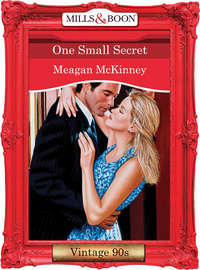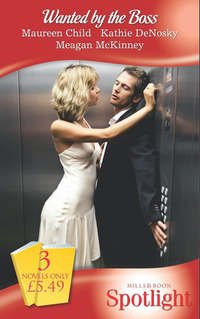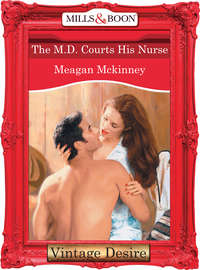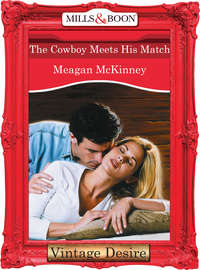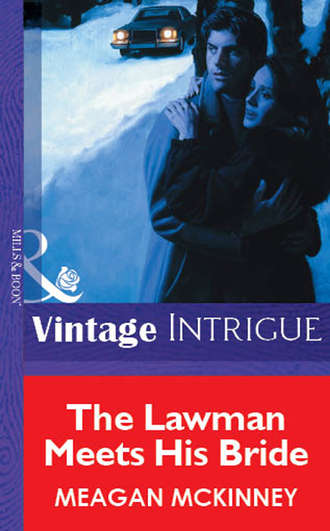
Полная версия
The Lawman Meets His Bride
When he did finally say something, mostly to end the painful silence between them, he was still evasive.
“I understand how all this must appear to you, but the process of observation defines only one reality. Others you haven’t observed are just as real.”
“Well, you certainly can talk like a lawyer.” Or his guilty client, she thought pointedly.
He surprised her by smiling, although there was no mirth or playfulness in it. “I suppose I do. But I don’t put the noose before the gavel.”
He pushed her inside the cabin.
“With those shutters closed it’s getting dark in here,” he observed. “Any lanterns or anything?”
“Candles, I think,” she responded reluctantly. “Try the cabinet near the sink.”
He limped over, rummaged in the cabinet, and produced several squat votive candles and a box of kitchen matches. He lit two of the candles, and set both of them on the floor. Then, emitting a weary sigh, he gingerly sat down between the candles and supported his back against the cabinet. She noticed he was shivering again.
She was still holding her purse. She thought about her cell phone, then remembered that someone in her family should be calling her soon to check on her. Her fear, momentarily forgotten while they moved the cars, now returned in full force. The man had shown all the tenderness of a wounded lion. He wouldn’t take kindly to any more tricks. Staring at his large form and tough, weary expression, she suddenly realized the truth of the “eighth house.” She should have never come up to the mountains and shown the cabin. It had proven disastrous.
“Do you have to pace like that?” he sniped.
“I’m sorry. The gun makes me nervous,” she confessed.
“I put it away.”
“Yes, but it’s right there, handy. Isn’t it?”
He ignored her, sleeving beads of sweat off his forehead. His wound was getting worse, she realized when she noticed his pain-clouded eyes. Despite her fear and anger, she felt a twinge of pity for him.
“Who shot you?” she repeated. “The police?”
He shook his head. “Not the same police you have in mind. It was federal marshals.”
She halted, shocked into immobility. Federal marshals…his crime or crimes must be serious.
He gave a snort at the look on her face. “If you can’t handle the answers, don’t ask the questions.”
“You needn’t worry about what I can handle.”
She started pacing again.
“Will you please sit the hell down?” he demanded. “I’m getting a crick in my neck watching you.”
“I’ll sit down,” she agreed, doing so. “Now will you please tell me what’s going on, Mr. Loudon?”
For some time he simply ignored her question. Finally he nodded. When he spoke, his voice showed the strain he’d been through lately.
“I’ll leave out the names and just cut to the chase. Basically, I was sent out here from Washington, D.C., to assist on a massive, ongoing investigation into kickback schemes involving the Montana Department of Highways. Or I guess I should say allegedly involving them.”
“I’ve heard the word all my life,” she confessed, “but I’m not exactly sure what a ‘kickback’ is.”
“It just means a slice of the pie. Cost overruns are a venerable part of construction profits. You know, the doubling or even tripling of a project’s estimated price after the work is underway. Most in government understand this and seldom bring indictments over it. But lately there’s been a corps of new, reform-minded attorneys in the Justice Department. We’re trying to change the business-as-usual graft.”
He hesitated, as if trying to gather his thoughts. The front door stood open, the wedge of sky it revealed turning purplish blue in twilight. A breeze wafted, making the candles gutter. For a moment Constance smelled the clean, nose-tickling tang of the evergreens on the lower slopes. It only made her more miserable to be his captive.
“One day last spring,” he resumed, “I had to go see a certain judge in Billings. It was a touchy matter—I had already, under federal guidelines for internal review, subpoenaed certain phone and financial information on some attorneys he knew on a social basis. I’m allowed to do that, without notifying anyone, so long as no charges are filed.”
This time when he hesitated, on a sharp intake of hissing breath, she knew it was his wound.
“Anyway, I intended to ask the judge’s permission to execute a search warrant. I wanted agents to seize the private financial records of a certain state legislator, a guy I suspect is at the heart of the kickback scheme.”
A spasm of pain crossed his face, etching his handsome features even deeper in the candlelight.
“I never did talk to that judge. The county sheriff and I were on the verge of knocking on his office door when we saw the door was open a crack, and the judge was inside with a…ahh, let’s call him an attorney who represents certain road-construction bosses. This attorney was also one of the guys I had been investigating. Right before my ears and eyes—and the sheriff’s—he hands a briefcase stuffed with money to the judge.”
“A bribe?” she encouraged him to continue when he hesitated.
“The wise guys never use that word. It’s usually called a contribution, but damn straight it was a bribe. I knew it and the sheriff knew it. Schra—I mean, this judge regularly rules on cases involving the attorney’s clients.”
He paused, and she watched him touch a dry tongue to chapped lips. “Does that thing work?” he asked her, pointing to the hand pump bolted to the sideboard of the sink.
“I think so. It’s cistern water, but up here it’s safe to drink.”
She resisted the urge to help him when he struggled to his feet. He pumped the air out of the pipes, then waited for the rusty water to run clear. She watched him cup his hand and drink greedily.
“Anyway,” he said, picking up the thread of his story again as he joined her on the floor, “I made one very stupid mistake. I forgot all about the hallway security cameras that are standard equipment now in courthouse buildings. The tapes are routinely reviewed, at fast speed, and any unusual events are reported. So there the sheriff and I were, caught on film outside the judge’s door. And of course the date and time were recorded, too.”
“I see. So the men who were inside had sure knowledge that you came to the door and saw them?”
He nodded, his face morose and pensive in that flickering, yellow-orange light.
“Exactly. At first I thought it was just the security cameras that might have them worried. Us standing outside the door when the bribe came down. But now the sheriff’s missing. And I realize they must know, or at least suspect, that I’ve been building a case against them. They’ve turned my own game against me.”
“How do you know?”
His voice was sharp with bitter resentment. “The sheriff was just a good old boy retired from the fed that I knew and liked. We had lunch whenever we both had to go to the courthouse. He had nothing to do with the situation, just the wrong place, wrong time. Now he’s missing.” He stared at her, his eyes dark and sunken in his pain-filled face. “When they realized what we saw they knew it’d be damn hard to off an assistant U.S. Attorney in the middle of an investigation, but Cod—I mean, the sheriff, he was a piece of cake. They made him disappear, then they set about turning all the evidence against me, even that tape. You see, I was carrying a briefcase, too. So it was totally logical to simply suggest that I had come by that day to bribe the judge. Then, seeing he was with someone, I supposedly changed my mind and left without knocking.”
“But how could they prove such a charge from that tape?” she asked, incredulous.
“They couldn’t, of course. But the judge swore out a deposition that I tried to bribe him soon after that. So the tape became corroborative evidence, one more nail in my coffin. And believe me, they’ve planted far more incriminating evidence against me since then. The newfound cash in my apartment in Washington was why I had to escape today.”
He fell silent, evidently exhausted by the effort to tell her all this. Then Constance noticed the fresh bloodstain growing under his leg. His wound was bleeding again.
Looking at his haggard features, it occurred to her for the first time. He just might not make it.
It might mean her own salvation. If he died, she could escape.
But gazing closer into his pain-filmed eyes, she felt a deep sympathy well up inside her. Despite his holding a gun on her, despite everything she’d suffered because of Doug’s treachery, Loudon made her want to believe him. He had an earnestness that was hard to look away from, and his story was related in such a fashion that it didn’t make sense to her he’d use his last strength to tell her lies. There was no purpose to any lies now. She was still his unwilling prisoner.
However, neither could she forget Hazel’s remark about Doug: Even the devil can cite Scripture for his purpose.
His voice suddenly sliced into her thoughts.
“Here,” he told her, handing her a black leather wallet.
The wallet was opened to a photo ID that bore the official seal of the U.S. Justice Department. It identified Quinn Loudon as an assistant U.S. Attorney.
“I believe who and what you are,” she told him carefully, handing it back.
“But anyone can turn rotten, right? Is that what you’re implying?”
“You’re bleeding,” she pointed out, sidestepping his question. But in fact he’d hit the proverbial nail right on the head—“good guys” were not guaranteed by badges and IDs. The headlines proved, every day, that good guys became bad guys for the right price.
Loudon pulled his shirttails out and ripped off a strip of the material. Quickly he folded it into a makeshift bandage.
“Turn your head,” he ordered her.
When she hesitated, he simply shrugged. “Suit yourself, I’m not bashful.”
When she heard his belt buckle clinking and realized he was lowering his trousers, she did quickly turn away while he tied the cloth around his wound.
“All right,” he told her a few moments later. “Peep show’s over.”
“You’ve got to get to a doctor,” she told him. “That wound could infect.”
“Nix on that. By law doctors have to report every gunshot wound. I’ve already figured out what I need to do first. I’ve got one possible ace in the hole, but I’ll need to drive to Billings if I mean to play it.”
“That’s a 400-mile drive,” she reminded him. “You’ll never make it.”
“Probably not,” he agreed. “That’s why you’re going to take me. And we’ll have to use your vehicle. By now mine has to be the object of a state-wide search.”
“No,” she said. “I’m afraid. I…your story is quite convincing. But it’s only your word. Besides, even if I chose to believe you—this is obviously a very serious situation. I just…I can’t, I’m sorry. I’m just too afraid.”
“I don’t recall asking you,” he reminded her, and a sinister tone of menace had entered his voice—or so it seemed to her in her fright.
“I can’t,” she insisted.
“Yes, you can.”
“All right then, I won’t.”
“Actually, it’s best that you refuse. That way you don’t become an accessory or get charged with aiding and abetting a fugitive. It’s this that will force you, and that’s what you’ll tell the authorities later.”
His hand slipped inside his suit jacket and emerged with the gun. Again he didn’t aim it at her—but he held it in plain view as a reminder.
“You will drive me to Billings, Miss Adams.” His stare pierced her. “End of discussion.”
I’m in deep, thought Quinn, and going deeper.
Despite the long drink in the cabin, the inside of his mouth tasted as dry and stale as the last cracker at the bottom of the barrel. He hadn’t eaten all day, and his pinched stomach felt like it had been pumped.
Additionally, even the black plastic bag covering the smashed window didn’t entirely keep out the cold. Constance Adams’s Jeep did not ride nearly so smoothly as his Lexus. Each time it bounced over a hole or rut on Old Mill Road, pain exploded in his thigh. But even at its worst, the physical pain was nothing compared to his inner turmoil.
His criminal actions earlier today, in Kalispell, while certainly censurable could at least be partially defended. They had caught him completely flat-footed, unprepared, and he simply reacted in a panic. After all, his freedom was on the line. He had been fighting the threat of wrongful imprisonment as well as ensuring his ability to disprove the phony charges against him.
But now…now it was a whole new criminal ball game. He had taken a hostage under the implied threat of violence. Only sheer desperation could have driven him to such an action. “Beyond the pale” hardly described his conduct now.
The heater was blowing, and he wasn’t shivering now. He opened the passenger’s window to let the cold night air revive him a bit. A sliver of nascent moon hung over the serrated mountain peaks, golden against a blue-black evening sky.
Constance Adams had said nothing during the ride back down to the valley floor and the interstate highway. Now she finally spoke up.
“Mr. Loudon? If you really are innocent, as you say, you should easily be able to clear yourself, shouldn’t you? Won’t your actions now just make things needlessly worse for you?”
“Easily? Believe me, given the men I’m up against, it would be easier to write my name on water.”
There was so much more to it, he thought in a welter of despair and misery, that she just couldn’t understand from outside the situation. The money planted in his apartment back east, for example. He realized now that this scam involved more players than just Whitaker and Schrader. Others were involved, and there was some sort of sub-rosa accord between them.
Quinn wished he could make her understand the enormity and complexity of his situation. He hardly knew the woman, but something about her made him believe she could be a strong ally if he could somehow win her trust.
Something else suddenly occurred to him, and a prickle of alarm moved down his spine.
“Do you have a road map of Montana?” he demanded.
“In the glovebox, I think. But we won’t need it. I’ve driven to Billings plenty of times.”
“Yeah, on the interstate,” he replied as he opened the accordion folds of the map. “But do you know the back roads?”
“You mean all the way to Billings? No. Why take back roads? We aren’t in your car.”
He flicked on the dome light to study the map. “I just realized there’ll probably be an APB out on me. Checkpoints will be set up along the main routes. I can’t risk it.”
“You really think it’s that important to the police?”
“You kidding? I fired on federal agents. They’ll raise six sorts of hell.”
“You fired at them?”
“What, you think they shot me because they don’t like my face?”
“You didn’t tell me…I mean….”
She trailed off, too taken aback to speak. He could feel a new level of tension in the Jeep.
“If it makes any difference,” he told her, “I didn’t exactly fire at them. I fired deliberately high to miss them.”
While the overhead light was on, he felt her glance keep touching him, then quickly sliding away. Even mired in pain and worry, he couldn’t help appreciating her good looks. Understandably, this latest revelation had left her somewhat whey-faced. But she had stunning amber eyes and medium-length hair the color of burnt sienna. The only feature even slightly out of harmony with the serenity of her face were her somewhat witchy eyebrows. But he liked them. Liked them a lot. She was the kind of woman who looked liked she could play angel or devil depending on her mood. In truth, if they’d met under any other circumstances, he’d have let her known without a doubt he was attracted to her.
But he had other worries now. Big ones. He quickly worked out a route, along secondary roads, that would be safer but considerably longer. He turned the light out just before Old Mill Road—smooth blacktop now—leveled out on the floor of Mystery Valley.
“Just go on past the interstate,” he directed her. “Take County Line Road east.”
He sat back in the seat and allowed his ruminations to turn toward the situation at hand. Despite all that had happened to him, Quinn couldn’t really say he was surprised by what Schrader and Whitaker were up to. They were corrupt, and greed was a powerful motivator.
He wasn’t sure, however, about prosecutor Dolph Merriday. True, the man had real facility with a cliché—scratch a federal prosecutor and you’ll find an ambitious politician. But something bothered Quinn about the man. Above all, prosecutors were negotiators. But his unyielding stance…
Constance Adams abruptly interrupted his ruminations.
“Mr. Loudon?” She looked at him from the wheel, hesitating, thinking, her pretty lips curved down. “If—if your story is true, then I know you don’t want to become a real criminal by kidnapping me. There’s a state-trooper post ahead at Oxbow. You can turn yourself in there, and if you do, I promise you I’ll press no charges. We’ll call this a lift.”
He greeted her suggestion with a harsh bark of laughter. “And will you give me a lollipop, too, Miss Goody Two-Shoes?”
After that dig, he could almost whiff the anger coming off her.
“Why is it such a joke?” she demanded. “You could avoid kidnapping charges—”
“I can’t,” he cut her off tersely. “You’ve watched too many crime shows on TV where crusading lawyers always ensure that justice prevails. In real life innocent people are framed all the time.”
“So your rights are more important than mine, is that it? Why should I be victimized because you supposedly were?”
“Curiosity killed the cat, that’s why. All you had to do was keep your mouth shut when you saw that blood on the floor. The unlocked shutter didn’t give me away—the blood did. Once I knew you’d seen it, I also knew you’d report me.”
“I see. I’m being punished for showing a little concern.”
“I don’t want to punish you.” The truth of his words stabbed him and forced him to grow silent. With difficulty, he added, “But things are the way they are, that’s all. Now just shut up and drive.”
“Please let me stop at Oxbow,” she repeated, her voice pleading. “I know you don’t want to become a common criminal.”
“Look,” he answered harshly, his patience worn by the pain of his leg, and the pain in his soul, “I’ll keep it to a simple command—shut your damned mouth and drive.”
He noticed she had been checking her watch every few minutes. She did so again now.
“Got a hot date?” he asked her.
“What if I did? Doesn’t really matter, does it? My time is yours now—gun man,” she added pointedly.
Her words cut far deeper than she realized.
He sank farther down into the seat and morosely surveyed the situation. Ms. Constance Adams would never know how hard it all sat with him. He’d spent his childhood in a series of foster homes after his real parents—both of them drug addicts—had gone to prison for holding up a liquor store to support their habit.
His last foster home had been the best—police Lieutenant Jim Westphal and his wife Ceil had loved him like their own son. From Jim, Quinn had caught the crime-fighting bug. He geared his whole life toward a career in law enforcement. He wanted, more than anything else, to be one of the good guys in the war on crime. As if only that could erase all the pain and humiliation his real parents had caused him.
And now, as if there were some kind of dark, blood destiny coursing through his veins, he, too, was officially a criminal. Certainly he would never hurt this woman whom he held against her will; violence, at least, was not in him. She had no idea that his gun was empty and he had no more bullets for it. Somehow it had been easier to bluff with an empty weapon—he could never have pointed a loaded gun at her.
But the thought was little consolation. With every mile they drove, he sank deeper and deeper into anguish. It just didn’t seem possible that fate could be so cruel—could in fact force him into the very role he’d fought his entire life to avoid.
Again he noticed her nervously check her watch. He opened his mouth to ask her about it again. But before he could speak, a telephone chirred, the sound muffled by her purse.
Someone was calling for her.
Chapter 4
The phone rang a second time, a third. With every ring, Constance could feel her body stiffen. The ache to grab it and scream for help was smothered by the fear of the gun in Loudon’s pocket. Every ring was torture.
It was Beth Ann, or someone else in her family, checking up on her as she’d requested. By now they would have already called her house, too. Obviously, Constance told herself, the only option was not to answer. That alone would set her family in motion trying to find her.
But she underestimated her captor’s shrewdness. He evidently didn’t trust her complacency.
“Answer it,” he ordered her.
At the same time he grabbed the steering wheel with one hand.
He spoke quickly. “I know you figure by now that I won’t shoot you. You’re right about that. But I swear by all things holy—you send even one hint to that caller, and I’ll dump both of us into that ditch just like that.”
Steep runoff ditches ran along both sides of the road, and the Jeep was moving at fifty-five miles per hour. She knew he could well be bluffing. But he jerked the wheel to warn her, and her heart missed a beat when they nearly swerved into the ditch.
“Answer it,” he ordered tersely as the phone continued to burr. “And no tricks.”
She fished the cell phone out of her purse. Loudon leaned his head close to hers, listening in.
“Hello?”
“God, ’bout time you answered, pokey,” Beth Ann’s voice complained. “What took you so long?”
When Constance hesitated, Loudon again jerked the wheel. The Jeep’s tires spewed gravel when they brushed the narrow shoulder. She felt her throat tighten with fear.
“I was passing two logging trucks,” she ad-libbed. “I had to wait until I got around them.”
“Oh. How’d it go? Did the guy buy the old Hupenbecker place?”
“He’s still debating, I guess.”
“Sure took you long enough. Is he cute?”
The Jeep hit a slight dip, and Loudon’s cheek brushed hers. She felt the rough masculine feel of his beard shadow. She forced herself to keep her tone light.
“Boys are cute, little sis. Men are handsome.”
“Well, is he handsome?”
“Can’t say,” Constance replied reluctantly but truthfully.
“Woo-woo! Are you still there with him?”
Constance took a sideways glance at Loudon. He shook his head and mouthed the word, no.
“No,” Connie whispered.
“Can’t hear you! We must have a bad connection.” Fuzz backed up Beth Ann’s assessment. “Well, at least the guy wasn’t an ax murderer. I gotta go now. I’m baby-sitting for the Campbells. Later, skater.”
Constance felt her heart sink as she put the phone away. If anything did happen to her, it was Friday and no one would be likely to seriously worry about her absence until Monday when her business associate, Ginny Lavoy, would miss her.
Another hazard, she thought bitterly, of having no love life. There was no one to miss you right away.
“‘Can’t say,’” Loudon repeated, a trace of whimsy mixed with his exhausted tone. “That’s a left-handed compliment if I ever heard one.”
“I didn’t mean to give you even a left-handed one,” she said, dead hope in her voice.
Loudon smirked and checked his watch. “Bad news travels fast,” he told her, turning on the radio to catch the top-of-the-hour news broadcast out of Helena.
The national news came first, the usual litany of political squabbling and natural-disaster news caused by abnormally warm ocean currents. Then the announcer turned to state news.
“The sound of gunfire erupted today at the Federal Court Building in Kalispell. Quinn Loudon, Assistant U.S. Attorney, literally blasted his way to freedom when U.S. Marshals attempted to place him under arrest. Loudon had appeared for pretrial proceedings stemming from charges of bribery and racketeering.


